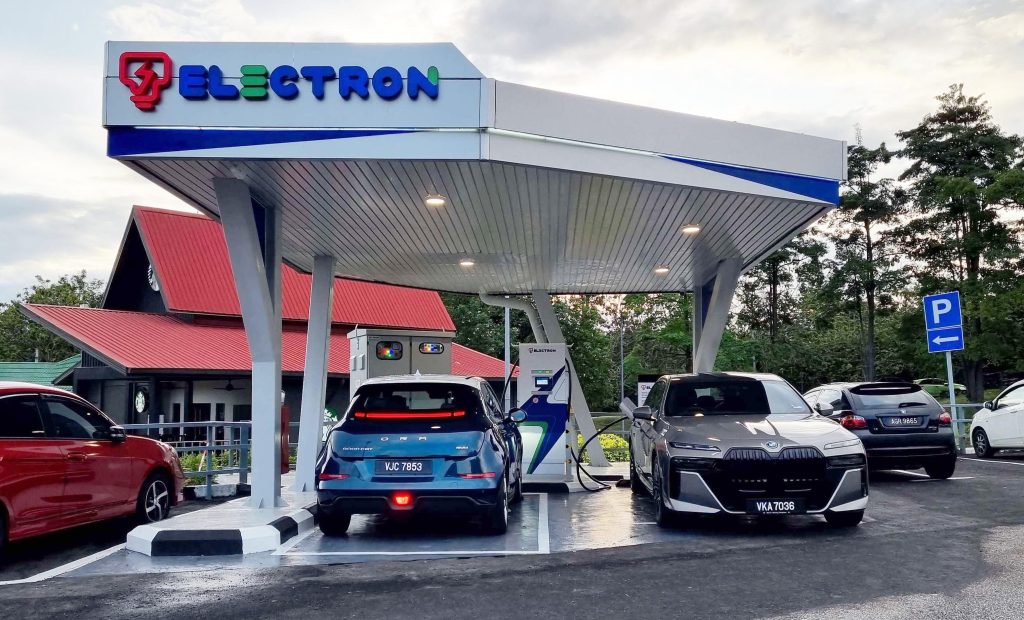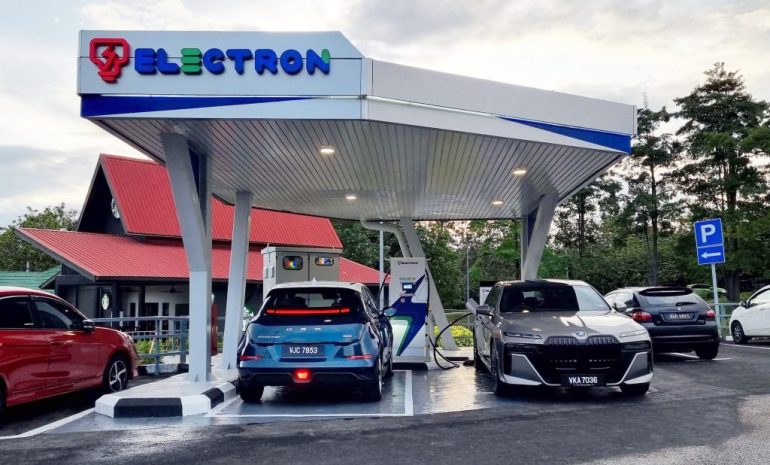The electric vehicle (EV) industry in Malaysia is gaining momentum as the country embraces sustainable transportation solutions and seeks to reduce its carbon footprint.
With government initiatives, incentives and growing public awareness, the EV market in Malaysia is witnessing significant developments and attracting investments from both local and international players.
Speaking at the panel discussion on The Future of Electric Mobility in Malaysia: Opportunities & Challenges for Industry & Government, Tenaga Nasional Bhd (TNB) head of stakeholder management Ir Mohd Junaizee Mohd Noor said Malaysia has been actively promoting the adoption of EVs as a sustainable transportation option.
However, the country’s EV revolution is faced with significant challenges, with one notable hurdle being the regulations imposed by the local authorities (PBT).
“These regulations have emerged as a roadblock in the path towards widespread EV adoption, hindering the growth of the industry.”
Mohd Junaizee
The PBT regulations, which vary across different states, encompass a range of concerns such as licensing, charging infrastructure and parking facilities.
“While the intentions behind these regulations may be to ensure a smooth transition to electric mobility, their implementation might add on more time to install power supply for EV users,” he added.
Another area of concern revolves around charging infrastructure. While Malaysia has made efforts to expand the availability of charging stations, PBT regulations often restrict the installation of chargers in certain areas.
Mohd Junaizee said these restrictions hamper the development of a comprehensive charging network, limiting the convenience and accessibility of EV charging for owners.
Parking facilities also pose a challenge for EV owners. PBT regulations, in some cases, mandate separate parking bays or impose additional fees for EV parking, making it more cumbersome for owners to find suitable parking spaces.
This issue is particularly prominent in urban areas where parking spaces are already limited, leading to frustration and inconvenience for EV owners who may face difficulties in finding adequate parking options near their destinations.
“The lack of standardised guidelines and a unified approach among PBTs further compounds the challenges faced by the EV industry in Malaysia.”
Mohd Junaizee
The absence of a cohesive regulatory framework has resulted in confusion and inefficiencies, deterring potential investors and industry players from committing resources to the EV sector. Clear and consistent guidelines, as well as coordination among PBTs, are crucial to creating a favourable environment that supports the growth of the EV industry.
“To overcome these challenges, it is essential for the government to address the concerns surrounding PBT regulations,” he said.
While the government’s efforts to encourage EV adoption in Malaysia are commendable, it is crucial to address the obstacles posed by PBT regulations. By creating a conducive environment that fosters EV growth, Malaysia can accelerate its journey towards a sustainable and greener transportation future.
Meanwhile, Universiti Teknologi Mara’s (UiTM) engineer assistant Ahmad Rais Johari said another challenge plaguing the EV landscape in Malaysia relates to the overwhelming number of mobile applications associated with EV ownership.
“These apps, which serve various purposes such as charging monitoring, vehicle performance and navigation not only strain phone memory but also pose potential issues when a phone’s battery runs low while charging an EV,” he said.
He explained that as the EV market grows in Malaysia, manufacturers and service providers have developed dedicated mobile applications to accompany their vehicles.
“These apps offer functionalities such as real-time charging station location, battery status updates and remote control capabilities. While these features can enhance the EV ownership experience, the proliferation of multiple apps from different manufacturers can quickly consume phone memory, causing frustration for users who have limited storage capacity.”
Ahmad Rais
Furthermore, he said the reliance on mobile apps for crucial EV functions introduces an additional concern when it comes to charging.
“EV owners often use their phones to initiate and monitor charging sessions, but this process can drain the phone’s battery,” he said.
In some instances, he said if the phone’s battery is already low, initiating a charging session may lead to the phone shutting down entirely, leaving the owner without access to essential charging information or control over their vehicle.
This reliance on mobile apps and the potential depletion of phone batteries forces EV owners to find alternative solutions to ensure uninterrupted access to EV-related functions, such as carrying additional power banks or using multiple devices, which adds complexity to the charging process and increases the risk of inconvenience.
“To address this challenge, EV manufacturers and service providers can explore alternative solutions that reduce the dependency on mobile apps or optimise their function-alities to minimise phone memory usage.”
Ahmad Rais
He added that consolidating features into a single app or offering lightweight versions that consume less storage can alleviate the strain on users’ devices.
Additionally, integrating charging information and control directly into the vehicle’s dashboard or providing alternative charging initiation methods can mitigate the risk of phone battery depletion during crucial charging operations.
“We are working internationally with experts from other countries including Japan and China to ensure the stability and reliability of EVs,” he added.
This collaboration allows them to leverage their expertise and experiences in EV technology, charging infrastructure and grid integration.
“It is crucial in establishing robust systems that ensure the smooth operation of EVs and contribute to the overall stability of the electric grid,” Ahmad Rais said.
Science, Technology and Innovation (Mosti) Minister Chang Lih Kang recently disclosed the country’s shortage of EV charging stations, which has failed to keep up with the increasing demand.
Speaking to the press after attending the signing ceremony of a memorandum of understanding (MoU) between Alibaba Cloud and Agmo Holdings Bhd, Chang revealed that Malaysia presently has approximately 1,000 EV charging stations. This number falls short of the government’s target of establishing 10,000 charging stations by 2025.
Chang emphasised that while EVs are gaining traction in the Malaysian market, the overall EV ecosystem remains incomplete due to the scarcity of charging infrastructure. The shortage poses a challenge to the seamless adoption and growth of EVs in the country, impacting potential EV owners’ confidence in transitioning to electric mobility. To combat the shortage, Chang shared that the government is committed to accelerating the deployment of EV charging infrastructure.
Collaborative efforts between public and private entities will be essential in driving this expansion. The government aims to attract investments and forge partnerships with industry players to establish a comprehensive network of charging stations throughout the country.
Assertively utilize business services through robust solutions. Rapidiously deliver cross-unit infrastructures rather than accurate metrics.

